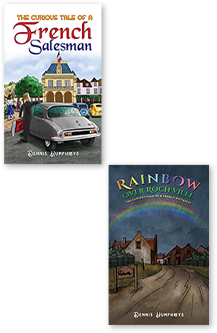
When Kings Had Nicknames
I am currently studying Anglo-Saxon history, preparing for an historical novel set in the reign of King Athelstan (925-939). He is referred to as the first King of All England. Unlike many other kings of that period, he did not have a nickname. His grandfather was Alfred “The Great”, the only English King ever to be called “The Great”. Later, Canute was given that sobriquet, but he was Danish.
Edmund I was known as “The Magnificent”- even better than “The Great”.
Athelstan’s father was Edward “The Elder”, although he was a young king. This was to distinguish him from his descendant, Edward “The Martyr”. This poor king was murdered on the orders of his step-mother, so that her son could become king. He was Ethelred II (“The Unready”). It seems that his mother was ready for anything. “Unready” is a translation of “Redeless”, lacking in counsel, rather than unprepared.
Then there were Edwy, “The Fair”-he was good-looking; Edgar “The Peaceful”-he avoided war; Edmund II “Ironside”, because of his armour; and Edward “The Confessor”, who was more interested in religion than kingship.
The Anglo-Danish kings had scary names, like “Bluetooth”, “Forkbeard” and “Harefoot”.
The French win the day on sobriquets. King Pépin “The Short” was the son of Charles “Martel” (the Hammer), who was a tall warrior. Pépin’s son was the tall and powerful King Charlemagne, who became the first Holy Roman Emperor. His name means “Charles the Great”.
French Kings’ sobriquets include: the Pious, the Bald, the Stammerer, the Fat, the Quarrelsome, the Wise, the Foolish, and the Affable. Some not too flattering.
One of Athelstan’s sisters married Charles III of France “The Simple”. A better translation would be “the Straightforward”. Poor old Louis V was known as “le Fainéant”-the king who did nothing.
The famous Louis XIV was known as “The Great” and as “The Sun King”.
After 1066 English kings had sobriquets: William I “The Conqueror”, for obvious reasons; his son William II “Rufus”, a reference to his red hair and ruddy complexion; Henry I was “Beauclerc”, meaning “good scholar”, as he was well-educated and literate: Henry II “Curtmantle”, because he wore a French-type natty short cloak, of which his English subjects took note.
Richard I was “The Lion Heart”, because he spent time on Crusades rather than governing England. King John was called “Sans Terre” or “Lackland”, because he lost so much of France.
Edward I (1272-1307) was the last English King to have a sobriquet, which was “Longshanks”, because he was tall. He was also “The Hammer of the Scots”, in view of his devastating campaigns in Scotland.
Elizabeth I was known as “The Virgin Queen”, as she was unmarried. The State of Virginia took its name from this.
The Scottish King Malcolm III (1057-1093), who defeated Macbeth, had the unflattering sobriquet of “Canmore”, meaning “Big Head” in Gaelic- a reference to the size of his skull rather than anything else.
Some kings would have been known with their sobriquets during their lives, but with others only after their death. It may have been risky to call a king “Fatty” or “Useless”, while he was alive and in earshot.
If British monarchs still had sobriquets, what might they be? I suggest Queen Elizabeth II “The Great”, due to her long years of devoted service and prudent conduct. Perhaps King Charles would like to be known as “The Green King”, in view of his passion for environmental matters. (Perhaps not as this title with a different spelling must be a trade name, and in another context has mythical connotations.)
Post Views : 455